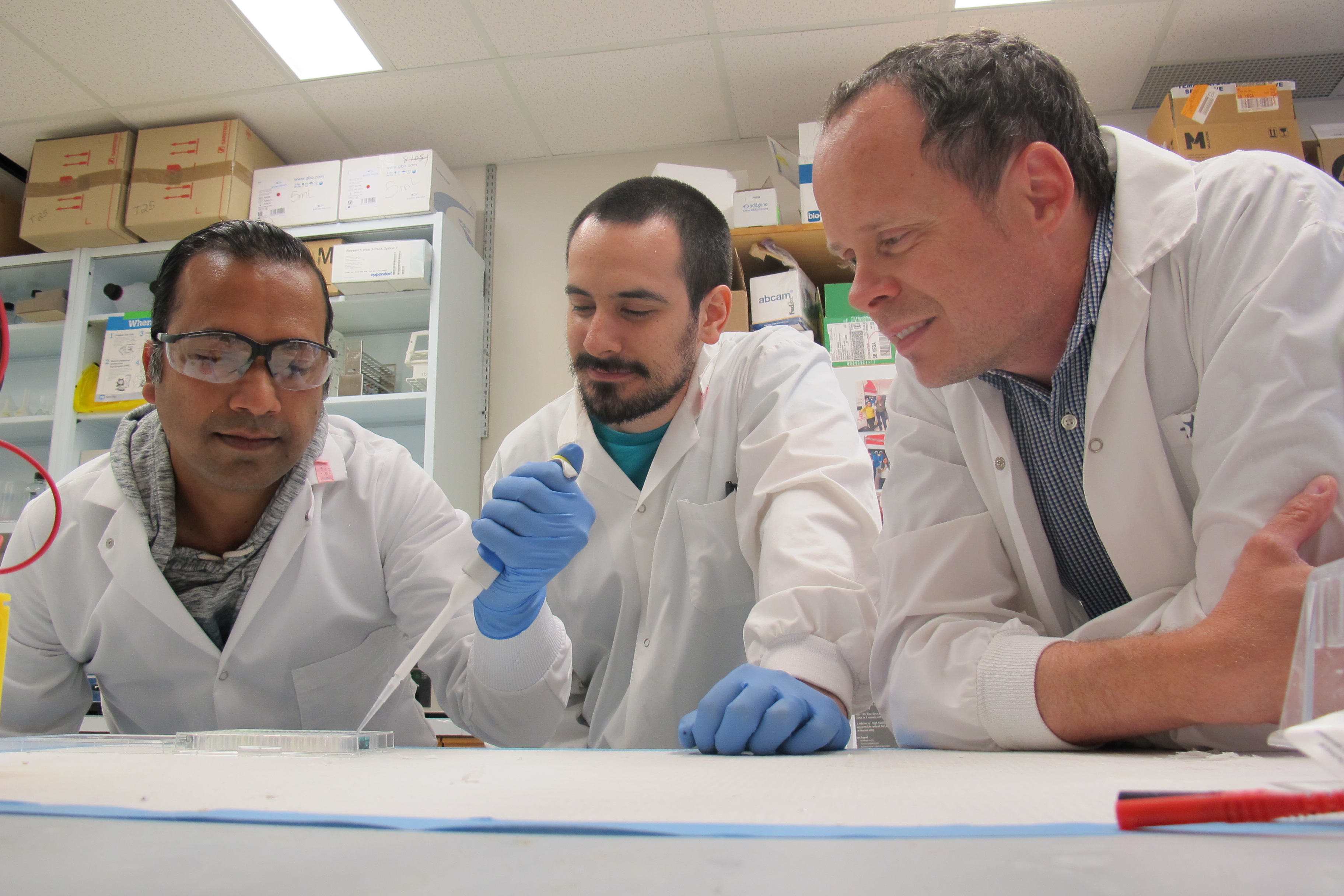
Arun Raturi, Tomas Gutiérrez and Thomas Simmen are co-authors of a University of Alberta study describing how a single protein has been discovered to slow the fast growth of tumour cells.
The fight against cancer is a marathon, fought step by step, inch by inch. While breakthroughs may be rare, a new study from the Faculty of Medicine & Dentistry is giving greater insight into the growth of cancer cells and bringing researchers one step closer to the finish line.
The study, published in the Journal of Cell Biology, identifies a previously unknown "off-switch" for cancer, based on the protein TMX1, that can serve as a new strategy for personalized medicine. Cancer tissue is known to alter its metabolic behavior by repressing respiration. This metabolic switch accelerates growth of tumour cells and promotes resistance to cell death mechanisms, making cancer difficult to treat.
The study found that the reduction of the protein TMX1 can single-handedly exacerbate these characteristics of cancer cells. While healthy cells activate TMX1 upon oxidative stress, tumour cells with low amounts of TMX1 are unable to boost their respiration and are resistant to cell death mechanisms. Such cells grow much faster and in turn lead to more aggressive types of cancer.
"Tumour tissue that is poor in TMX1 is expected to lead to more aggressive types of tumours," says Thomas Simmen, senior author of the paper and an associate professor in the Department of Cell Biology. "Therefore, TMX1 is a biomarker for cancer progression: when it is high, more treatment options are available and the tumour is less aggressive. This allows chemotherapeutic drugs to activate the TMX1 switch and reduce tumour growth via oxidative stress. We will now investigate whether antioxidants could actually inactivate the TMX1 switch in cancer where this protein is still present, and would hence cause problems."
The Simmen laboratory is continuing its work and is now investigating at which stage TMX1 gets increased or decreased in tumour tissue and why that occurs. It's hoped the insight will in time help researchers use the TMX1 mechanism for new therapeutic approaches-blocking the protein's elimination in cases where it's low and making use of it to trigger tumour tissue death in cases where it is found to be high. In patients where TMX1 is no longer present, Simmen says strategies will need to be found to revive it. The team also believes it can use its findings to give insight into the usefulness of adjuvants to chemotherapy-determining which ones can be used to make chemotherapy more efficient.
Meet our partners in innovation:
Cancer Research Society is a national not-for-profit organization whose mission is to fund research on all types of cancer, thereby contributing to the advancement of science aimed at preventing, detecting, and treating this disease.
Canadian Cancer Society is a national, community-based organization of volunteers whose mission is the eradication of cancer and the enhancement of the quality of life of people living with cancer.
Alberta Innovates - Health Solutions (AIHS) supports research and innovation activities to improve the health and wellbeing of Albertans and create health related social and economic benefits for Albertans. AIHS provides leadership for Alberta's health research and innovation enterprise by directing, coordinating, reviewing, funding and supporting research and innovation.
Did you know that you can make a donation to support cancer research at the University of Alberta? Learn more here.